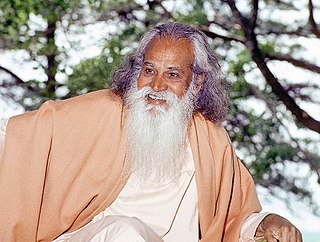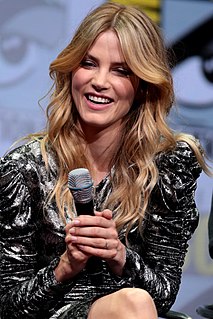A Quote by Koel Mallick
Life experiences help in understanding the character. And many things come to your mind regarding the character sketch when you read the script as many times as possible.
Related Quotes
The characters are born from repetition, from repeatedly thinking about them. I have their outline in my head. I become the character and as the character I visit the locations of the story many, many times. Only after that I start drawing the character, but again I do it many, many times, over and over. And I only finish just before the deadline.
Yoga says instinct is a trace of an old experience that has been repeated many times and the impressions have sunk down to the bottom of the mental lake. Although they go down, they aren’t completely erased. Don’t think you ever forget anything. All experiences are stored in the chittam; and, when the proper atmosphere is created, they come to the surface again. When we do something several times it forms a habit. Continue with that habit for a long time, and it becomes your character. Continue with that character and eventually, perhaps in another life, it comes up as instinct.
The "magic if" is a tool invented by Stanislavski, the father of acting craft, is to help an actor make appropriate choices. Essentially, the "magic if" refers to the answer to the question, "What would I do if I were this character in this situation?" Note that the question is not "What would I do if I were in this situation?" What you would do may be very different from what the character would do. Your job, based on your analysis of the script, the scene, and the given circumstances regarding the who of your character, is to decide what he or she would do.
When you are writing, you have to love all your characters. If you're writing something from a minor character's point of view, you really need to stop and say the purpose of this character isn't to be somebody's sidekick or to come in and put the horse in the stable. The purpose of this character is you're getting a little window into that character's life and that character's day. You have to write them as if they're not a minor character, because they do have their own things going on.
I live in New York, and Clara lives in Recife. The character is Brazilian, and as I read the script, I felt like Kleber [Mendonca] had been spying on me in order to create this role [in Aquarius]. Clara and I have different backgrounds. I come from an intuitive world, and she's an academic, but when we got together, we really became one. There are many times when I'm watching the film where Clara will say something, and I will find myself agreeing with her. It was the first time that I had this weird sensation that the character I played is so me, but yet it's so her.
You have a certain objectivity, as a member of the audience, and you can come away maybe being provoked into a certain discourse or a certain arena of questioning, regarding how you would deal with things that your character has to deal with. Whereas when you're doing a film, once you start asking, "What would I do?," you're getting the distance greater between yourself and the character, or you're bringing the character to you, which I think is self-serving, in the wrong way. The idea is to bring yourself to the character.



































